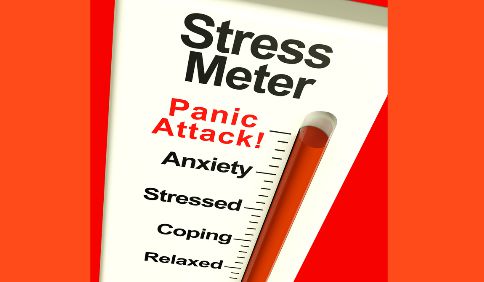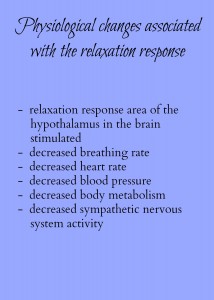 Do you know when your body is moving into what is known as the fight or flight response (otherwise known as the stress response)?
Do you know when your body is moving into what is known as the fight or flight response (otherwise known as the stress response)?
It can be a fine line between feeling relaxed and coping, to suddenly feeling stressed.
It can also be a very clear divide between feeling relaxed and feeling stressed and you may find that you are in a state of permanent stress! Not good!!
What Exactly is the Fight or Flight Response?
You’ve probably heard this fight or flight term bandied about at some point, but I wonder how much you really do understand about this.
A few years back when I reached my lowest point, I certainly was not giving any credit to the way in which repeated stress was affecting me, ie the way in which the fight or flight response was being activated in my body over and over again. The result was severe adrenal fatigue.
The fight or flight response is a very human, physiological response that has been a part of our human systems since forever. The analogy of the tiger chasing you has often been used, ie when you see a tiger chasing you, the body responds by preparing your system to either run (flight) or fight. Your body will do such things as:
- increase blood flow to your arms and legs (so you can run for your life or be ready to fight)
- increase your heart rate
- increase your breathing rate
- increase your blood pressure
- slow down your digestive functions (not needed in a crisis)
- slow down your sexual functions (also not needed in a crisis)
All of these things are preparing you to have a greater, heightened awareness and an increased ability to respond so that you can do what you need to do to survive!
Fight or Flight in our Modern Day World
The thing is, the chances of you being chased by a tiger or a lion or a shark for that matter are pretty low. While yes it does happen to some people, for the majority of us it doesn’t.
BUT
this doesn’t stop our fight or flight response going off in all kinds of situations in our modern day world, and I am wondering if you realise just how many of these situations are affecting you.
Let me share a study that Herbert Benson MD shared in his book “The Relaxation Response” which may help to give you some perspective on the kind of so called “normal” things that we don’t think have any kind of effect on us.
This study was performed by a Czech scientist, Dr J Brod and his associates.
The Experiment
- They brought together a group of healthy young adults.
- They started by having them lie quietly and measured their blood pressure, the blood pumped by the heart and the specific amount pumped to the muscles.
- They then had them solve an arithmetic problem which involved a 4 digit number like 1,194 and had them subtract 17 to come up with an answer, then subtract 17 from the new number, and so on.
- At the same time that they were doing this there was a metronome click clicking away and also a group of friends around them telling them things like “I did better than that.”
The Results
- They tested the same things they had tested at the beginning and found that the participants had increased blood pressure, increased muscle blood flow and increased pumping of the blood by the heart.These are all signs of the fight-or-flight response being activated!
- This experiment showed how a supposedly simple psychological challenge of mental arithmetic with some time pressure can activate the fight or flight response.
Herbert Benson MD went on to explain in his book “The Relaxation Response”,
“Situations that require behavioral adjustment can lead to specific physiologic changes, which bring forth the fight or flight response. We are all basically the same human organism, which responds to stressful events through this common, innate response. We may differ in what is stressful to us individually, depending upon our own value systems, but our society poses enough stressful circumstances to affect all of us.
When a single situation requiring behavioral adjustment occurs again and again, the fight or flight response is repeatedly activated.”
There are so many situations in our modern day world that can activate a stress response and it’s not something to be taken lightly. The problem with this is that when it does happen we don’t tend to run for our lives or fight. We most often take on a very passive response and end up with these chemical changes festering around inside of our body with no chance of release.
The fight or flight response can be activated in all kinds of supposedly “small” ways such as when
- you are under pressure to finish a task at work
- your kids are screaming and creating general mayhem
- you are not speaking up for what you need in a conversation with your partner, family member or a friend
- you are over exercising
- you are watching violent movies or the news
- you are using technology late at night
And so the list goes on and on……..
And of course there are also the bigger things happening in our lives which can repeatedly cause a fight or flight response
- constant arguments with your partner or family members
- divorce
- moving or other upheavals
- financial difficulties
- job loss or a new job
- illness
- death of a loved one
We are definitely all unique in what affects us, but not unique in the way our bodies respond to stress.
What are the Solutions?
While I don’t believe it is possible to completely eradicate things in our lives that may cause us stress, there are definitely many things we can do to unravel our mind, body and emotions.
I believe there to be 2 main areas that we can really look at
1. Activate what is known as the Relaxation Response
Just as our body engages in physiological changes with the fight or flight response, the body engages in the opposite physiological changes when we activate the relaxation response. You can see a summary of these differences below.


Herbert Benson MD, a Harvard doctor, studied the concept of the relaxation response and released a book on this topic way back in 1975.
He discovered through many experiments that meditation was one of the most profound ways to do this and he concluded that there were 4 main things that we need to do to activate this response.
a. Create a quiet environment.
b. Create an object to dwell upon. This can be a word to repeat, gazing at a symbol or concentrating on a particular feeling.
c. Create a passive attitude, i.e. letting your thoughts slide by without giving attention to them.
d. Be in a comfortable position.
His teachings were really quite profound and he was a forerunner in the field of mind/body medicine at a time when the medical profession had a very strong separation between the mind and the body.
He researched a lot of the religious and spiritual concepts relating to meditation but he also discovered that this was something that could be done by anyone, no spiritual or religious beliefs were needed as this was an innate physiological response created in the body.
I urge you to balance out the stress that’s created in your life (ie your body creating a fight or flight response) with creating situations (eg meditation) that will bring about a relaxation response, and do this every day.
Understand that you will stay feeling stressed when you are not doing something that creates a relaxation response in your body.
Do you really want to let the fight or flight response run your life?
2. Look at Making Changes with the Patterns in Your Life that are Creating Stress
Many of us have over time developed habitual ways of responding to situations, many of which have occurred since early in our childhood.
There are many tools and modalities available today to help to undo some of these patterns and set about creating new ones. Some of these include:
- Tapping (or EFT)
- Meditation
- Cognitive Behavioural Therapy
- Using Affirmations
- Gratitude and Journalling
- Counselling
- Hypnotherapy
- Kinesiology
It’s important to find the right kind of tool that resonates with you, but most important is that you do take steps to make changes in the way you are habitually responding in your life.
This is not an overnight process, but change can begin TODAY!
I wish you well.
Love Lisa
